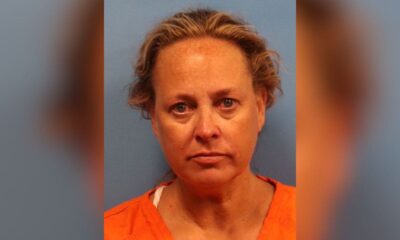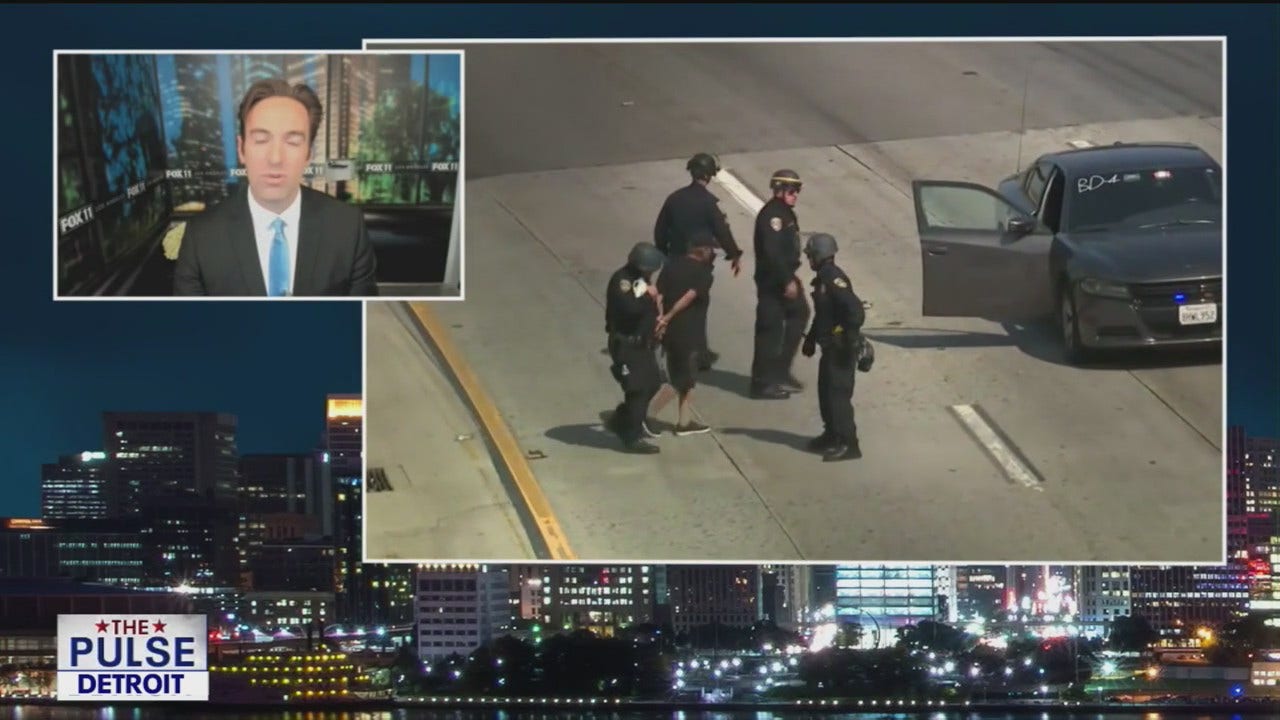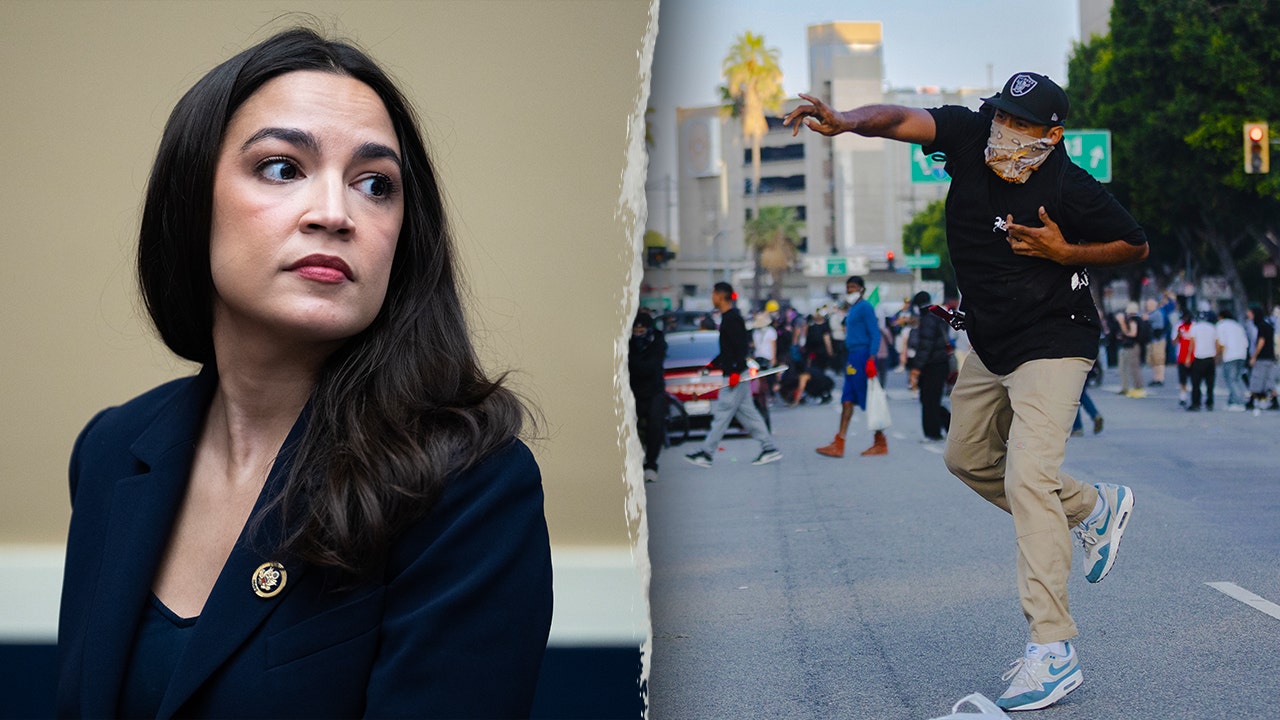Massachusetts
Waitlist for subsidized housing in Massachusetts is yearslong — despite ample amount of vacant units
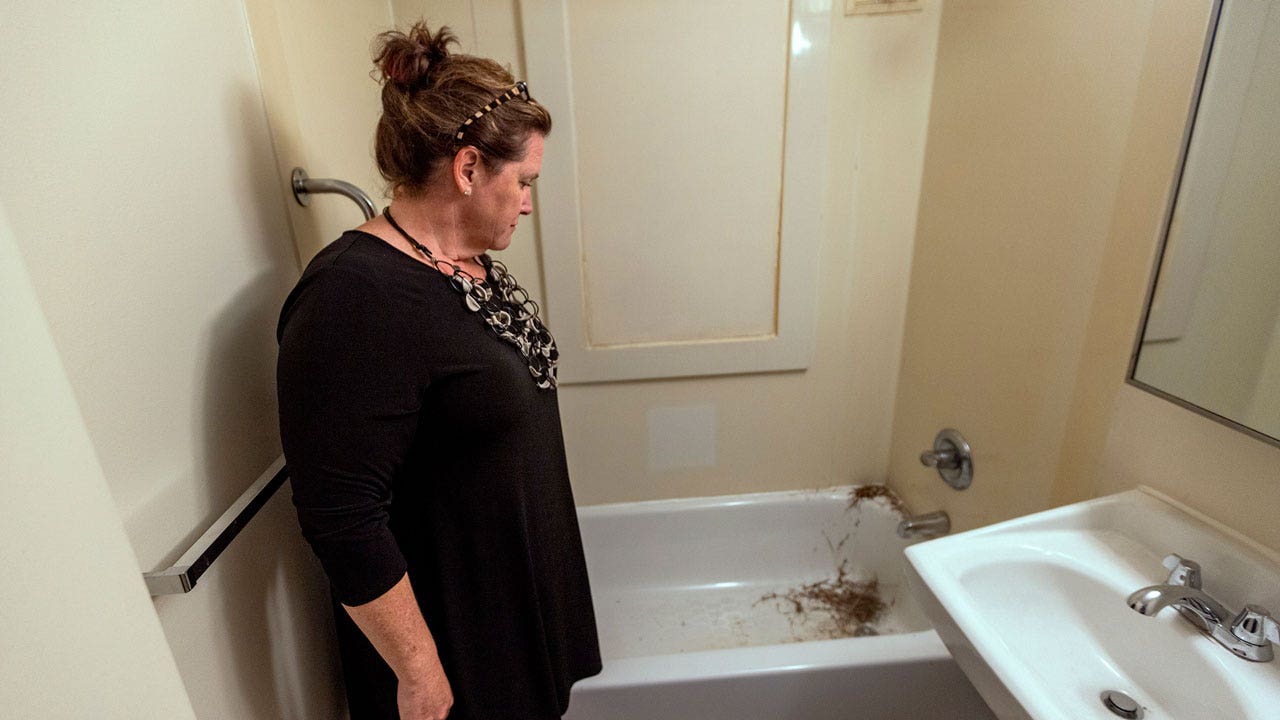
Deb Libby is running out of time to find a place to live.
Libby, 56, moved to Worcester, Massachusetts, four years ago, in part to be closer to the doctors treating her for pancreatic cancer.
But the landlord wants her out by the end of the month and she can’t find anything else she can afford. She earns only a little more than minimum wage at a hardware store and often has to take unpaid time off because of health problems.
Libby thought she found a potential solution nearly a year ago: She applied for state public housing, a type of subsidized housing that’s almost unique to Massachusetts. But she’s heard nothing since.
“It’s frightening,” she said. “I seriously don’t know what to do. It’s like the system’s broken.”
HOW PROGRESSIVES’ GRAND PLANS FOR SUBSIDIZED HOUSING HAVE HARMED AFRICAN AMERICANS
In Massachusetts, which has some of the country’s most expensive real estate, Libby is among the 184,000 people on a waitlist for the state’s 41,500 subsidized apartments.
Yet a WBUR and ProPublica investigation found that nobody is living in nearly 2,300 state-funded apartments, with most sitting empty for months or years. The state pays local housing authorities to maintain and operate the units whether they’re occupied or not. So the vacant apartments translate into millions of Massachusetts taxpayer dollars wasted due to delays and disorder fostered by state and local mismanagement.
Executive director of the Agawam Housing Authority Maureen Cayer finds the remains of a bird’s nest inside a family unit in Brady Village in Agawam, Mass., on Aug. 10, 2023. (Jesse Costa/WBUR)
As of the end of July, almost 1,800 of the vacant units had been empty for more than 60 days. That’s the amount of time the state allows local housing authorities to take to fill a vacancy. About 730 of those have not been rented for at least a year.
Doris Romero, a housing coordinator at a Boston shelter, was stunned to hear about all the vacant apartments.
“Honestly, that’s a travesty,” she said. “The commonwealth should be ashamed.”
Ed Augustus, the state’s new secretary of housing, who was sworn in at the beginning of June, said there’s no justification for so many empty units.
“I think it’s unacceptable,” he said.
Augustus said the state is making changes and he expects improvements soon.
In most states, low-income residents seeking affordable housing rely on federal housing, vouchers for private housing and other assistance. But Massachusetts is one of four states — alongside New York, Connecticut and Hawaii — that also has state funded housing. And the Massachusetts system is by far the biggest state funded housing system in the country — with more units than the other three states combined.
The vacancies in state-funded housing are aggravating a housing crisis in Massachusetts. Gov. Maura Healey declared a state of emergency in August to deal with the wave of homelessness. Massachusetts reports that the number of families with children staying in shelters has almost doubled in the past year to 6,386. Massachusetts spends $45 million a month to house people temporarily at hotels, shelters, college dorms and a military base.
WBUR found there are several reasons for the vacancies in the state-funded housing system, including a flawed online waitlist, insufficient funding for staff and repairs, and apartments being used for things other than housing.
Local housing officials blame the state’s online waitlist system for hundreds of the vacancies.
“I think it’s the most horrible, horrible, inefficient program,” said David Hedison, executive director at the housing authority in Chelmsford, a town 30 miles northwest of Boston. He said the agency spent six months contacting 500 people who were on the waitlist for a three-bedroom apartment, before it finally found one who responded and qualified for the unit.
Historically, local agencies with state-funded housing each managed their own small waitlists of applicants. People interested in housing had to apply to separate local housing agencies, often in person. Advocates complained it was too cumbersome. So Massachusetts launched a new system four years ago to make it easier for people to apply anywhere in the state online.
Since then, Hedison and other local housing officials have cited a litany of problems.
Applicants often fill out the lengthy forms incorrectly. And because there’s no upfront screening, housing officials only catch the errors late in the process — when they are already holding open apartments for people who don’t qualify for housing or need to be moved lower down the priority list.
People desperate for housing are often applying for housing all over the state. Housing officials all draw names from the same central database, so it’s common for multiple housing authorities to screen the same applicant at the same time, duplicating efforts and delaying the process. Some people wind up applying for towns too far from their family or work, and ultimately don’t accept the units.
MASSACHUSETTS ADOPTS NEW SEX EDUCATION GUIDELINES FOR SCHOOLS, MOVES TO BE MORE INCLUSIVE OF LGBTQ+ COMMUNITY
“It’s an exercise in futility,” said Maureen Cayer, the housing authority director in Agawam in Western Massachusetts, where four units have been vacant for more than two years as of July.
To speed up the application process, the state hired a marketing firm to take over some of the screening of public housing applicants, starting this month.
In addition, hundreds of other apartments can’t be filled because they’re undergoing repairs or because local housing authorities lack the staff or funding for vital repairs.
Advocates pushed the Legislature to double the operating budget for public housing this fiscal year, but lawmakers approved a smaller 16% increase to $107 million.
In the meantime, local officials say it routinely takes them months to turn over units because they don’t have enough workers.
Neglected repairs have piled up for so long that units in the town of Adams, in the Berkshires near the New York state border, were condemned. Housing officials have razed dilapidated apartments in cities such as Lowell, northwest of Boston, and Fall River, near the Rhode Island line.
The state estimates there’s a $3.2 billion backlog for renovations.
Healey said the state is working on a bond bill to address the infrastructure problems, but declined to provide details.
Across the state, housing authorities have also converted at least 121 state-subsidized apartments for uses including offices, storage areas, laundry rooms, and even a police station — further shrinking the pool of units available for low-income families, seniors and people with disabilities.
Meanwhile people like Libby, the Worcester woman facing eviction at the end of September, are desperate to find affordable housing.
She was surprised to hear about all the units sitting vacant across the state.
“It’s frustrating,” she said. “It’s maddening.”

Massachusetts
Why are banks building so many new branches in Massachusetts?
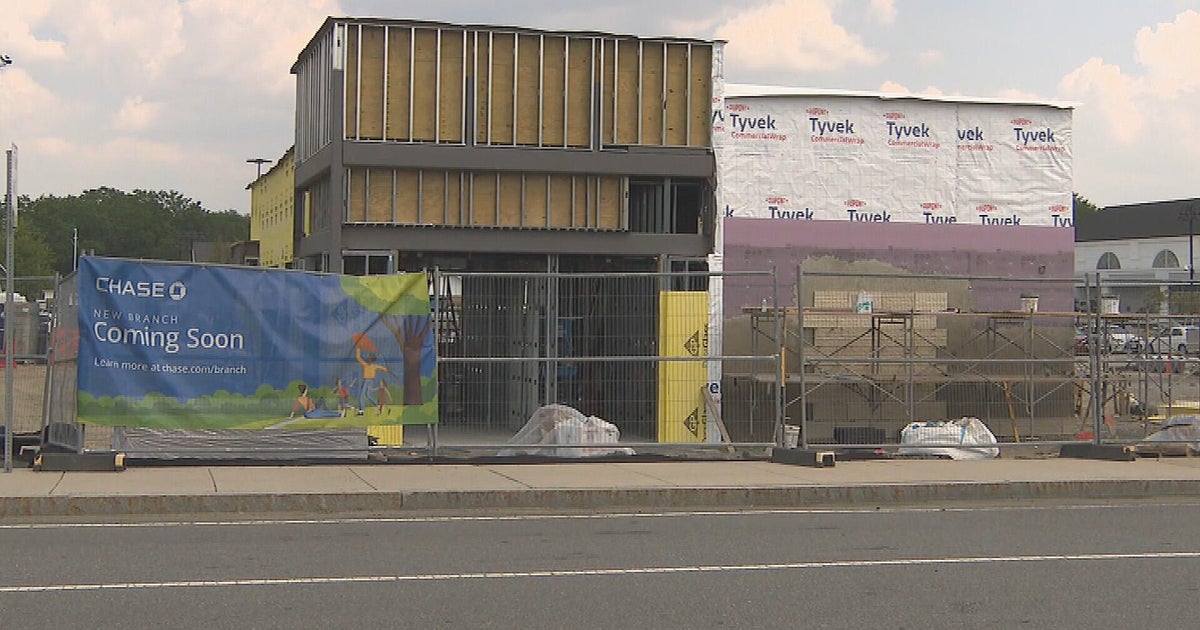
With money sending apps and online banking, why are so many new bank branches popping up in Massachusetts?
Ever spot a “Space Available for Lease” sign and hope a new café, bookstore or restaurant is coming to town? Excitement builds and then you learn… it’s another bank? It seems to be recent trend in banking and now it’s happening in Massachusetts.
In Needham for instance, a town of about 32,000 people, there are nine bank branches. One of the newest is a Chase Bank that replaced a convenience store which had replaced a Friendly’s restaurant.
“I was hoping it would be a restaurant,” said Eileen Baker, who owns Proud Mary, a gift and fashion boutique in the heart of Needham. “We would love to see little coffee shops; I know a lot of people would love to see a bookshop in Needham. Little specialty foods.”
Baker and many other small business owners thrive when people are drawn downtown by new specialty shops and restaurants. Banks, not so much.
Chase opening 50 new branches
With mobile banking and Venmo, physical banks might seem outdated. But Chase, the country’s largest commercial bank, plans to open 50 new branches in the state by 2027, including brand-new branches in towns like Sudbury and Weston.
“I don’t really understand why there are so many banks,” said one young man outside of the under-construction Chase in Sudbury.
Opening in wealthy neighborhoods
Good question. So, we asked Eric Rosengren, former President of the Federal Reserve Bank of Boston.
“They would only do it because its cost effective,” Rosengren said. “You don’t see it in lower income neighborhoods. You see it in wealthy neighborhoods, because even a few wealthy individuals can provide a significant amount of income coming from the wealth management.”
Rosengren says these often-plush new branches are designed to attract affluent customers who might still value face-to-face financial advice.
Recent surge
This surge is a very recent shift. In fact, nationwide, the total number of bank branches has dropped by 13,000 in the last decade. In 2014 there were about 81,000 U.S. bank branches. In 2023 – for the first time in a long time- there was an uptick in new branches- leaving about 68,000 branches.
Will the trend continue? Most research says younger customers are using mobile banking and very seldom visit their local branch. Will they change their minds once they begin to accumulate wealth? Sound like some financial companies are banking on it.
If you have a question you’d like us to look into, please email questioneverything@cbsboston.com.
Massachusetts
Wealth surtax may generate $3 billion in Mass.
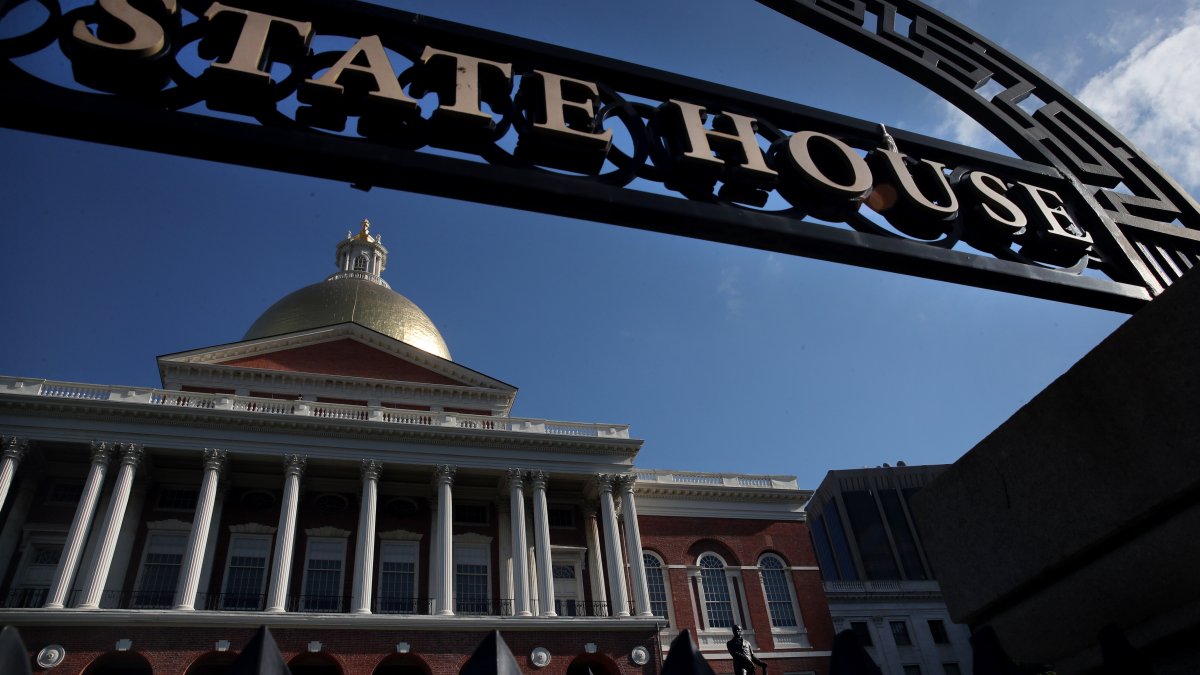
State budget honcho Matthew Gorzkowicz told municipal officials Tuesday that Massachusetts is on track to rake in nearly $3 billion from its surtax on household income greater than about $1 million, more than double the estimate used to craft this year’s budget.
The Department of Revenue reported last month that the state had collected just less than $2.6 billion from the 4% surtax between July 1, 2024, and April 30, 2025, surpassing the $2.46 billion that the surtax generated in fiscal 2024 in just 10 months of fiscal 2025. May and June collections are expected to add to that total, and Gorzkowicz said Tuesday that he now thinks total fiscal 2025 surtax collections “could be closer to $3 billion.”
“We will have the benefit of being able to spend those dollars on education, transportation, as you’ve seen us do with our January supp as part of our transportation package this past year,” the secretary of administration and finance told the Local Government Advisory Commission, referring to the surtax surplus spending bill that is now in conference committee. “We’ll have another opportunity to do that again.”
The Healey administration and legislative Democrats have used conservative collection estimates in the first few years of the surtax, which was approved by voters in 2022. Under the constitution, revenue generated by the surtax can only be used for education or transportation initiatives and the conservative estimating has given lawmakers extra money to dole out separate from the traditional state budget process.
When they built the fiscal 2025 budget, the administration and legislative leaders agreed to spend $1.3 billion in surtax revenue this year. If Gorzkowicz’s estimate proves correct, the Legislature could have as much as $1.7 billion to spend sometime after DOR certifies the full-year surtax collection amount in the fall.
When they agreed on a consensus revenue estimate for fiscal 2026 earlier this year, Gorzkowicz and the Ways and Means Committee chairs mutually estimated the state will collect $2.4 billion from the income surtax in fiscal 2026. But they agreed to spend at most $1.95 billion from that in the annual budget bill, which like the surtax surplus bill is also the subject of conference committee negotiations.
Massachusetts
Newton judge accused of helping man evade ICE has hearing

A Newton judge accused of helping an undocumented immigrant evade federal immigration custody in April 2018 had a hearing before the Massachusetts Commission on Judicial Conduct on Monday.
Judge Shelley Joseph allegedly allowed Jose Medina-Perez, a Dominican national, to escape out a downstairs back door while an ICE agent waited in the lobby to detain him. Medina-Perez was facing a fugitive from justice charge on a warrant out of Pennsylvania along with two misdemeanor drug charges.
“This case is about the integrity, impartiality and independence of the Massachusetts judiciary,” said Judith Fabricant, special counsel for the commission.
“Judge Joseph that day was trying to respect the rights of everybody before her,” said Elizabeth Mulvey, Joseph’s attorney.
Joseph was first indicted on federal charges of obstruction of justice in 2019 under the first Trump administration. After admitting to certain facts, those charges were dropped under the Biden administration, and her case was referred to the commission.
Monday’s hearing started with a viewing at Newton District Court, with Denis J. McInerney, the hearing officer appointed by the Supreme Judicial Court for this case. Fabricant and Mulvey then presented opening statements in Suffolk Superior Court.
The defense claims Joseph had nothing to do with the conspiracy to help Medina-Perez escape, laying blame on David Jellinek, who was his defense lawyer.
“Before Judge Joseph even knew that David Jellinek was in the courthouse, he had already made a deal with court officer Wes MacGregor,” Mulvey said. “He had this deal that if he could get his client back downstairs, the court officer would let him out the sallyport door,” Mulvey said.
Jellinek was the first to take the stand. In his testimony, he described feeling as though he had Joseph’s permission to bring Medina-Perez downstairs to help him sneak out.
“He told the judge that if his client could go back downstairs, he thought he could get him released through the back,” Fabricant said. “The judge said something to the effect of, ‘Yes, that’s what we’ll do.’”
Joseph’s team said otherwise.
“Nobody told her that Medina-Perez had gone out the back door. She knew nothing about it,” Mulvey said.
Much of this debate stems from what exactly was said when the court recording was shut off for 52 seconds. Fabricant asked Jellinek why he requested to speak to Joseph off the record.
“I wanted to go off the record because I knew that the next phase of our conversation and what I was going to suggest or ask for as a defense lawyer was perhaps right on the edge of acceptable or appropriate,” Jellinek said.
The hearing could last several days. The Commission on Judicial Conduct has the power to recommend discipline but does not have the power to remove Joseph from the bench.
-

 West5 days ago
West5 days agoBattle over Space Command HQ location heats up as lawmakers press new Air Force secretary
-
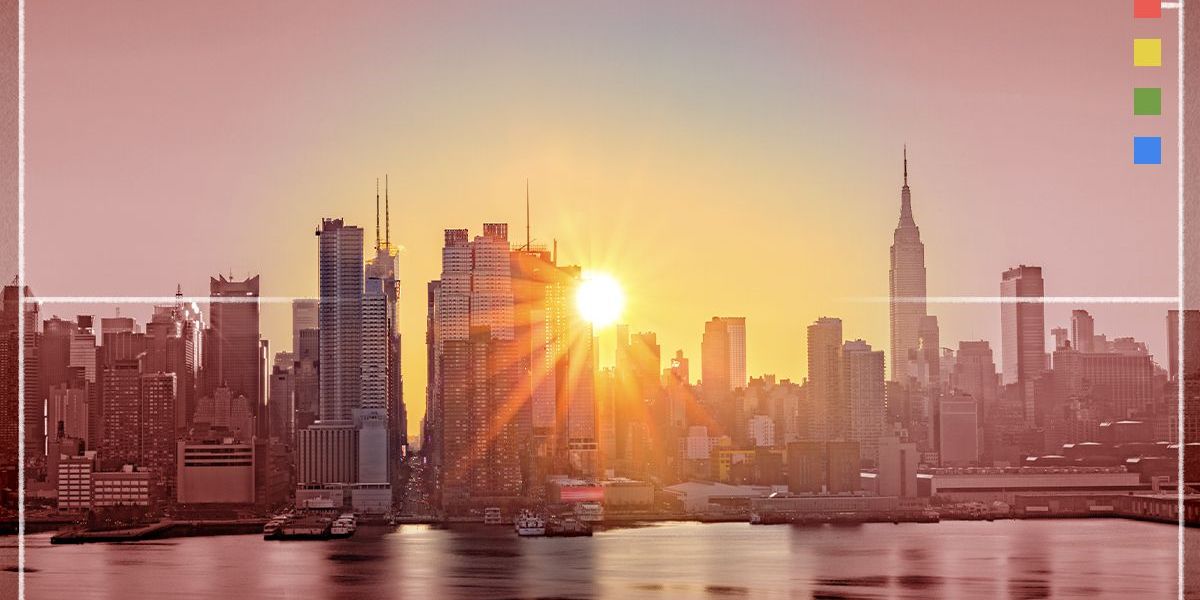
 Alaska1 week ago
Alaska1 week agoInterior Plans to Rescind Drilling Ban in Alaska’s National Petroleum Reserve
-

 Technology1 week ago
Technology1 week agoMicrosoft will finally stop bugging Windows users about Edge — but only in Europe
-
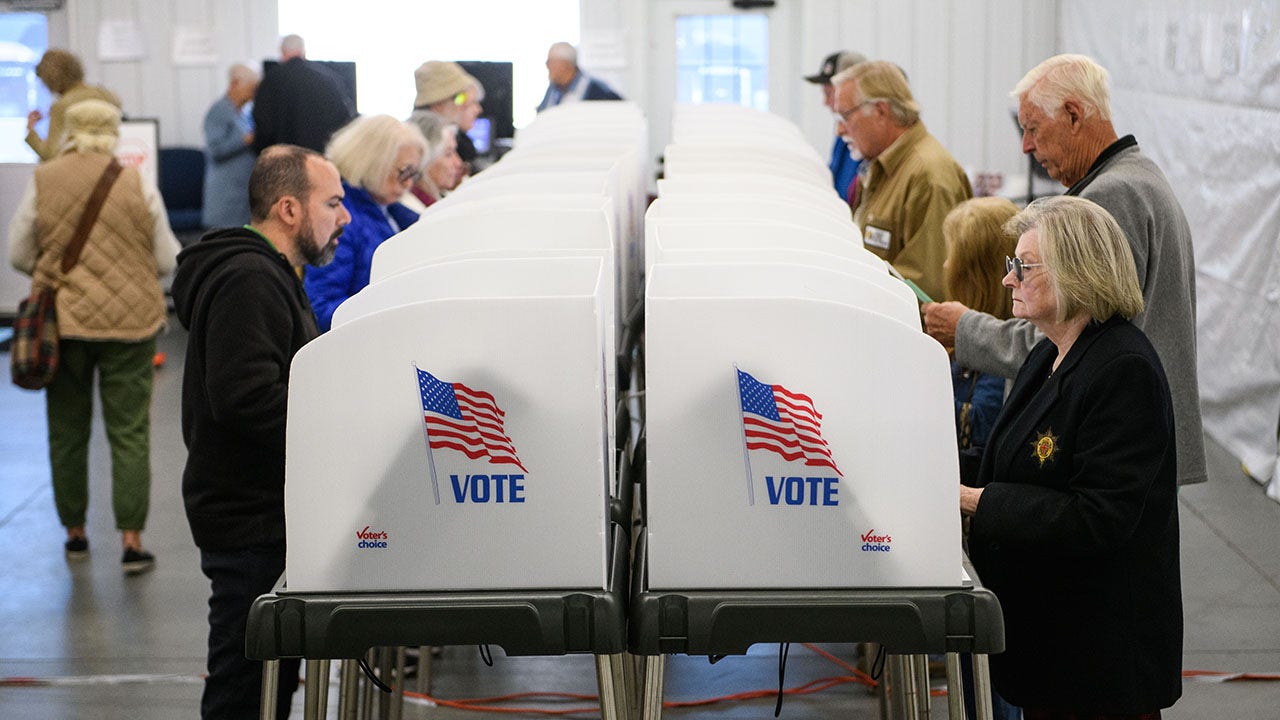
 Politics1 week ago
Politics1 week agoRed state tops annual Heritage Foundation scorecard for strongest election integrity: 'Hard to cheat'
-

 World1 week ago
World1 week agoTwo suspected Ugandan rebels killed in Kampala explosion
-

 Politics1 week ago
Politics1 week agoTrump pushes 'Big, Beautiful Bill' as solution to four years of Biden failures: 'Largest tax cut, EVER'
-

 Culture1 week ago
Culture1 week agoDo You Know the Jobs These Authors Had Before They Found Literary Success?
-

 World1 week ago
World1 week agoEU trade chief to meet US counterpart in Paris amid tariff tensions






